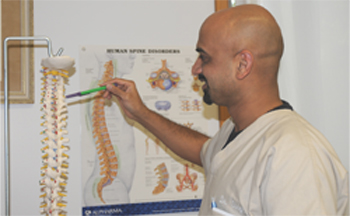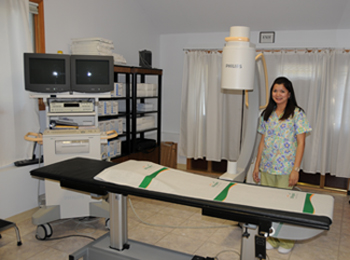 Pain management is a branch of medicine that applies science to the reduction of pain. It covers a wide spectrum of conditions including neuropathic pain, sciatica, postoperative pain and more. Pain management is a branch of medicine that applies science to the reduction of pain. It covers a wide spectrum of conditions including neuropathic pain, sciatica, postoperative pain and more.
Pain management is a medical specialty that takes a multi-disciplinary approach to treating all kinds of pain. We as pain management specialist evaluate, treat and rehabilitate people in pain.
As pain management specialist its important to recognize the complex nature of pain and approache the problem with a multi dimensional approach. At Jersey Institute of Neuroscience pain management treatment is patient-centric and personalized.
At Jersey Institute of Neuroscience we offer to patients two types of physicians: a neurologist, who provides consultation to specialists and a physical rehabilitation specialist. We not only take care of the physical element but also help patients deal with any accompanying depression or anxiety, especially if one has chronic pain.
As a part of our comprehensive approach to pain management we co-ordinate with other medical specialties represented in pain management i.e. anesthesiology, neurosurgery and internal medicine. In order to achieve total health for our pain patient, we may refer patients for services from occupational medicine specialists, social workers and/or alternative and complementary medicine practitioners.
 At Jersey Institute of Neuroscience our goal of pain management is to Minimize pain, rather than eliminate it, as quite often it is not possible to completely do away with it Improve function Increase quality of life.
At Jersey Institute of Neuroscience our goal of pain management is to Minimize pain, rather than eliminate it, as quite often it is not possible to completely do away with it Improve function Increase quality of life.
"We now have many modalities, including medication, interventional pain management techniques (nerve blocks, spinal cord stimulators and similar treatments), along with physical therapy and alternative medicine to help reduce the pain.
As a first-time patient in a pain management clinic, you might experience the following:
* Evaluation.
* Diagnostic tests, if necessary, as determined in the evaluation.
* Referral to surgeon, if indicated by the tests and evaluation.
* Interventional treatment, such as injections or spinal cord stimulation.
* Physical therapy to increase range-of-motion and strength, and to prepare you to go back to work.
* Psychiatry to deal with depression, anxiety and/or other issues that may accompany your chronic pain.
* Alternative medicine to provide a complement to your other treatments.
Back and neck pain sufferers who do best with a pain management program, are those who have had multiple back surgeries, including failed surgeries, and are still in pain, those with neuropathy, and those for whom it has been determined that surgery would not benefit their condition.
People who have become addicted to pain medication actually need more sophisticated help than what a pain management program can offer them. A chronic pain rehab program is a better choice for these people.
According to Pain Physician, results from research studies on pain management are not always applicable to the problems patients come in with to the clinics on a day-to-day basis. Unfortunately, this has a negative effect on insurance reimbursement and other payment arrangements, as well as standardization of this medical specialty.
Better understanding of pain syndromes by communities and insurance companies and more studies on pain will help increase insurance coverage for pain management treatments. In the future, the use of technology will help improve the outcomes of interventional pain management techniques.
|